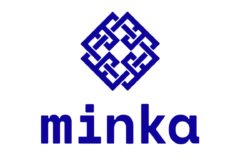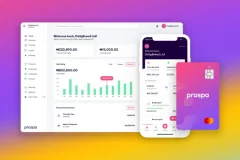Access to credit in Africa is difficult because banks consider retail loans risky. But payday lenders are filling this gap, promising instant loans with no collateral.
While they provide credit, they have high interest rates and repayment periods can force customers into a debt cycle.
In response to these concerns, Google updated its policies. Introduced in August 2019, Google’s policy bans payday lenders with repayment cycles of less than 60 days from its app store.
Regardless, a search for “instant loans” returns eleven results on the Google Play store.
See: In search of quick loans, Nigerians give up privacy
What is Google’s policy for lending apps?
We do not allow apps that promote personal loans which require repayment in full in 60 days or less from the date the loan is issued (we refer to these as “short-term personal loans”). This policy applies to apps which offer loans directly, lead generators, and those who connect consumers with third-party lenders.
Besides this, Google also asks these companies to include details of loans in their meta-data on the Play store.
Apps for personal loans must disclose the following information in the app metadata:
Minimum and maximum period for repayment
Maximum Annual Percentage Rate (APR), which generally includes interest rate plus fees and other costs for a year, or similar other rate calculated consistently with local law
A representative example of the total cost of the loan, including all applicable fees
Despite Google’s clear guidelines, lenders are beating the system and avoiding the consequences with a mix of clever methods.
It’s still business as usual for payday lenders
One Payday lender, Fairmoney, states that its repayment periods range between 91-180 days.
But a test of the app showed that the company’s practise is different from what it states in Google Store. When you download the app, it offers first time loans of ₦1,500 ($4.15) – ₦15,000 ($41.47) for 2-4 weeks.
Another service, OKash, which operates under the OPay app in Nigeria is also violating Google’s policy. At first, a test use of OKash shows that customers are eligible for a loan size of ₦30,000 ($82) for 60 days, in compliance with Google’s policies.
But once a customer clicks on “apply now” and includes debit card information, it redirects them to another page which shows the real loan terms:
What appears to be the real offer is a loan amount of N8,000 ($22.12) for 15 days.
If Google is the hunter that is learning to shoot without missing, Payday lenders are the birds learning to fly without perching.
One company which started as a PayDay lender but is adding other offerings to its service is Carbon. When TechCabal asked Carbon about Google’s new policies, a representative of the company said:
“Contrary to what most people think, Google’s policy changes re: payday loans are not new. Anyone who’s advertised via Google ads will tell you they have had the policy on personal loans in place for about a year and a half.
We were required to make certain disclosures in order to get ads approved on their platform. Same applies to the current policy to list on the Play Store.”
Another lender, FairMoney told TechCabal that Google’s policies have no impact on them:
“We are working anyway hard on providing longer termed loan facilities to our customers as it matches the use case of some customers better. Overall, let’s keep the decision of what customers want to the customers and let’s keep regulation to the regulators.”
In Kenya, where there are up to 49 lending platforms, lenders are also violating Google’s policies. Four out of the top ten free apps in Kenya are fintech apps offering free loans.
One such company, Loan Chap Chap has an app on PlayStore which mentions a 7-Day repayment period.
Utunzi, another popular loan app claims in its loan description that its minimum loan period is 91-days but several review comments on Playstore say that repayment periods are under 60 days.
One of the biggest concerns for payday lenders will be if Google decides to take their apps down.
Distribution problems could affect revenue for lenders
While Migo uses a low-fidelity USSD model, many payday lenders rely on apps to reach a mass market. This poses significant risks for their future if Google takes action against these violations. These African startups could go out of business..
One company that is already feeling the heat is Opera, which owns OKash. In recent company financials, 42% of Opera’s revenues are from its lending business.
In the third quarter of 2019, Opera said it distributed over $250 million worth of loans and made recorded lending revenue of $39.9 million. OKash operates under different umbrellas OPesa(Kenya), OKash under the OPay app (Nigeria) and CashBean (India).
Earlier in the week, research by Hindenburg Research shows how OKash is violating Google’s policy. Within a couple of hours, in Nigeria, access to OKash loans under the OPay app was no longer available.
Opera’s lending app in Kenya, OPesa is no longer on PlayStore, and it is unclear if it is a preemptive move from the company to avoid Google’s scrutiny.
In the end, if Google enforces its lending policy, OKash could collapse, and so will Opera’s optimistic view of its lending business.
The company has lost significant browser market share over the last few years. That decline has tanked its browser revenue, forcing the company to diversify into financial services.
Despite these reports, Opera has responded to Hindenburg’s Research in a statement on its investor website claiming the report contains “numerous errors”.
The company also says it is considering its decision to stay on the OPay app as they are “reviewing the business impact of our partners”.
It also claims that OKash will continue to be available on Google Playstore as it is “fully compliant with the policies”.
In spite of these assurances, one thing is clear, Opera and other payday lenders will need to alter their current lending practices if they intend to keep their distribution intact.





















